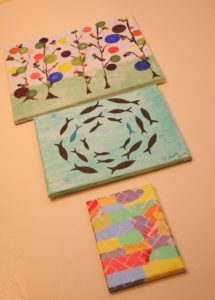Activities
For more Information
You are welcome to visit Halwill Manor at any time, so please contact us to arrange a tour around our Home, or to request a brochure.

Activities in a Care Home? That just means doing chair exercises and playing Bingo………Doesn’t it???
The short answer, No.
There is so much more to Activities than meets the eye. Ensuring that people are given the opportunity to be mentally engaged and socially active has many important benefits.

Such as:
-
Improving brain function
-
promoting muscle and tissue growth
-
positive Emotional Development
-
less dependency on medications
-
better sleep
-
confidence
Research
In fact, activity theory has long maintained that older adults who are engaged in an activity, particularly meaningful activity, experience higher levels of psychological and physical well-being compared to those who are less involved (Havighurst & Albrecht, 1953; Phinney, 2006).
There is also a substantial body of evidence linking engagement in meaningful activities with positive health outcomes for persons with dementia (Menne, Johnson, Whitlatch, & Schwartz, 2012; Phinney, Chaudhury, & O’Connor, 2007).
Fortunately, though, more and more care homes are realising the importance of a quality culture of activities and social engagement.
At Halwill Manor we are constantly working to break the stereotype of activities in a Nursing Home.
We develop activities that are meaningful to the individual. Much more effective than just group sessions of bingo!
Key Points
According to research by (Genoe & Dupuis, 2012; Harmer & Orrell, 2008; Phinney et al., 2007).
‘Evidence indicates there are three basic features important in meaningful activity‘
They are:
-
Active participation
-
Activity content related to the interests and past roles of the participants
-
Activities that meet the basic psychological needs of identity and belonging
It is important to understand that effective activities do not just involve a group event, but can and should also be 1-1 interactions in the privacy of peoples own rooms if necessary.
In Practice
In order for these individual activities to be meaningful, the background history of each individual person must be understood.
From the moment of admission into the Home, we begin to build a ‘social engagement profile’ for each person living at the Home.
This profile can be accessed by the rest of the care and nursing team so they too can get involved in providing activities at any time of the day.
By opening up the whole Care Team to this approach, it allows for a culture of activities to be ever present within the environment.


